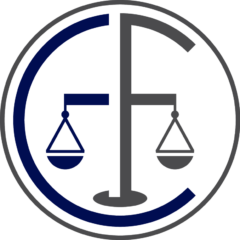The crimes committed in Aurora, Colorado (and the accompanying tragedy for the thousands of family members and friends immediately affected) is calling attention to various gun ownership reforms. Let’s review some of the key North Carolina and federal criminal laws (see more here about the Federal Government’s Project Safe Neighborhoods) that affect gun ownership.
As always, if you have any questions about these issues, contact a Raleigh criminal lawyer.
The Purchase of a Long Gun in North Carolina
A long gun is a rifle or shotgun. Under both North Carolina and federal law, a person may purchase a long gun pursuant to an instantaneous background check. This check is run by the salesperson upon purchase of the gun. Among other things, your status as a U.S. citizen or Resident Alien is verified, your age and criminal record. Your asked questions about your mental competency as well.
The Purchase of a Handgun in North Carolina
In North Carolina, you must obtain a pistol purchase permit (a law dating back to 1919) in order to purchase a handgun. The purchase permit is granted by the Sheriff in the county in which you reside, and policies vary county by county. In Wake County, you can obtain up to five permits at one time (at $5/permit). Wake County Pistol Permits take seven to ten days to complete, after which you can pick up your permits and use each permit to purchase a handgun. You can purchase multiple handguns a single day, although federal authorities may be flagged if you purchase a number of handguns within a certain period of time.
You can bypass the pistol permit program altogether by first getting a concealed carry permit (See more here about concealed carry permits in Wake County), which allows you to show the concealed carry permit to a shopowner or gun seller.
The Possession of a Handgun or Long Gun
Assuming you may legally possess firearms (see below), you may possess as many handguns or long guns as you wish, and there is no requirement that you register these guns (with the exception that Durham County does have a registration requirement for handguns.)
The exception to this is that you may not possess certain kinds of specialized firearms, such as fully automatic weapons or suppressors or silencers. If you have any question about whether your weapon is legal, make sure you speak with a lawyer.
If you move or area traveling through North Carolina, you may possess your firearms as long as they are otherwise lawfully possessed or were lawfully purchased. In other words, you do not need to notify North Carolina authorities (except in Durham County concerning handguns) simply for moving or passing through North Carolina assuming the weapons are properly stored and properly carried. For instance, North Carolina does recognize concealed carry permits issued by other states, but you need to make sure you states’ permits are recognized in North Carolina. Again, consult a North Carolina lawyer about this issue if you have any doubts.
Illegal Possession of a Handgun or Long Gun
It is illegal for certain people to possess a handgun or long gun, including, but not limited to:
- Convicted felon (who has not applied for a restoration of his gun rights under North Carolina law)
- Undocumented or Illegal Aliens
- Fugitives from Justice
- Abuser of alcohol, or user of illegal controlled substances
- People convicted of Domestic Violence offenses (See more here about DV laws and guns)
- People discharged from military service under dishonorable conditions
- Someone who has an active 50B that alleges violence or a domestic threat (See here about DVPO and 50B orders and guns)
- Someone who has an active court order that bars gun possession
- Someone who is on probation of any kind (See more about probation and firearms)
In addition, it is illegal to possess a firearm whose serial number has been altered or defaced, or a firearm that was stolen.
Class 3 Weapons and National Firearms Act Gun Trusts
It is illegal for someone to possess a fully automatic rifle without a Class 3 federal firearms license. In addition, someone who has a Class 3 license needs to follow specific rules and regulations regarding the transportation of these weapons even from someone’s home to a firing range. The rules can be onerous.
NFA Trusts are almost certainly an illegal “workaround”. I would not advise anyone to use such trusts to try to evade the National Firearms Act until either the ATFE (formerly the ATF) or a federal court of appeals rules in the issue.
Where You Can Take Your Firearm
North Carolina law, federal law, and local ordinances ban firearms from certain locations, including, federal buildings, parks, courthouses, schools, bars, restaurants, and other venues that serve alcohol, sporting events, and locations where the owner has posted a sign that says “no firearms permitted”. These rules vary by location, and it is the gun owner’s responsibility to where and how he can transport the weapon.
How You Can Legally Carry or Store Your Firearm
While it is legal to carry a holstered weapon while exposed in many locations, do not be surprised if by doing so you attract unwanted attention from law enforcement, and possible criminal charges. While you may or may not win the case, the hassle of carrying open may not be worth it.
It is also illegal to display or brandish a gun in a manner that either causes or can reasonably be expected to cause fear or panic. This crime is a misdemeanor in North Carolina called “Going Armed to the Terror of the People.”
It is illegal to point the gun, even if unloaded, at an individual, unless in self-defense. Doing so invites a charge of Assault by Pointing a Gun, a class A1 misdemeanor.
It is illegal to conceal a handgun without a proper permit. Concealment includes placing the gun somewhere in your car within reach (usually considered somewhere in the passenger compartment. Placing the gun under your driver seat, if you do not have a concealed carry permit, is illegal (and unsafe). And, if permitted, a person must indicate to law enforcement that he or she is a concealed carry permit holder and that he or she has a concealed gun.
It is illegal to store the weapon in a place or manner easily within reach of a child.
It is illegal to discharge a weapon within certain distances of dwelling places.
Summary of your Gun Rights
While North Carolina has a fairly open view of handguns and firearms, it is important that people take responsibility for their ownership rights by exercising those rights in a proper manner, which includes following the letter and spirit of the law.


